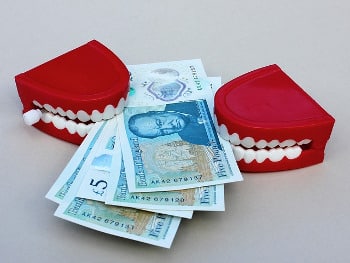An investment of £10,000 in the FTSE All-share index in August 2008, before the Lehman crash, would now be worth £21,352 with dividends reinvested. The US markets have gained even more with a £10,000 investment in the S&P 500 in September 2008 now being worth nearly £40,000, with dividends reinvested. That phenomenal performance is partly down to the rise in value of the Faang stocks – Facebook, Apple, Amazon, Netflix and Google – and also helped by the weaker pound boosting returns for UK investors.
Best performing shares in the FTSE 100 since Lehman collapse
- London Stock Exchange Group + 545%
- Intercontinental Hotels +515%
- Next, Costa Coffee and Sky TV are all up more than 200%
Worst performing shares from FTSE 100 when Lehman collapsed
- Lonmin (mining business, extracting platinum in South Africa) -99%
- Royal Bank of Scotland -89%
- Lloyds Banking Group, Thomas Cook and First Group are all still down more than 50%
Pensions
Low interest rates and the Bank of England’s quantitative easing programme have driven down the interest rates pension funds can earn over the long term. The 10-year gilt yield fell from 4.5% before the collapse of Lehman to around 3% in the aftermath, then fell back to below 2% during the eurozone debt crisis, then to a little over 0.5% after the Brexit vote. Pension liabilities, which are the long-term costs faced by a retirement plan, rise as gilt yields fall. So, while lower interest payments on government debt is good for the Treasury, pension funds found their deficits widening. The 10-year gilt is now 1.49%.
House prices
Like share prices, house prices dipped following the crash only to recover in most parts of the country – and spectacularly in London. In September 2007 the average UK house price was £190,000. By March 2009 it was £154,000, according to Land Registry data. The average house price is now £228,000. The strongest growth has been in the capital, the east and the south-east of England. Prices in Northern Ireland and the north-east are however still below September 2007 levels.
A lost decade for savers
Huge sums have poured into savings accounts since the crash of 10 years ago. Unfortunately the low interest rates adopted to help the economy mean the average interest paid on sterling deposit accounts has slumped from 3% in 2008 to 0.4%, according to Bank of England figures. Many accounts pay no interest at all and the sums in these has swollen from £48bn in September 2008 to £164bn today. A sum of £10,000 held on deposit for the last 10 years would now be worth £10,852 – or only £8,790 when inflation is taken into account. Compare this to a value of £21,352 had you remained invested in the FTSE All Share index.
In summary, whilst the collapse of Lehman triggered a global financial crisis, data shows that panicking and liquidating investments was the wrong decision. Stockmarkets move in cycles and remaining invested through the good and bad times is always the best long-term strategy.
This communication is for informational purposes only and is not intended to constitute, and should not be construed as, investment advice, investment recommendations or investment research. You should seek advice from a professional adviser before embarking on any financial planning activity. Whilst every effort has been made to ensure the information contained in this communication is correct, we are not responsible for any errors or omissions.

 A judge at a UK court has ruled that limitations in the law mean divorcing partners cannot make claims for the
A judge at a UK court has ruled that limitations in the law mean divorcing partners cannot make claims for the  Are we on the cusp of a brave new world of robo-advisers in the financial advice industry?
Are we on the cusp of a brave new world of robo-advisers in the financial advice industry?